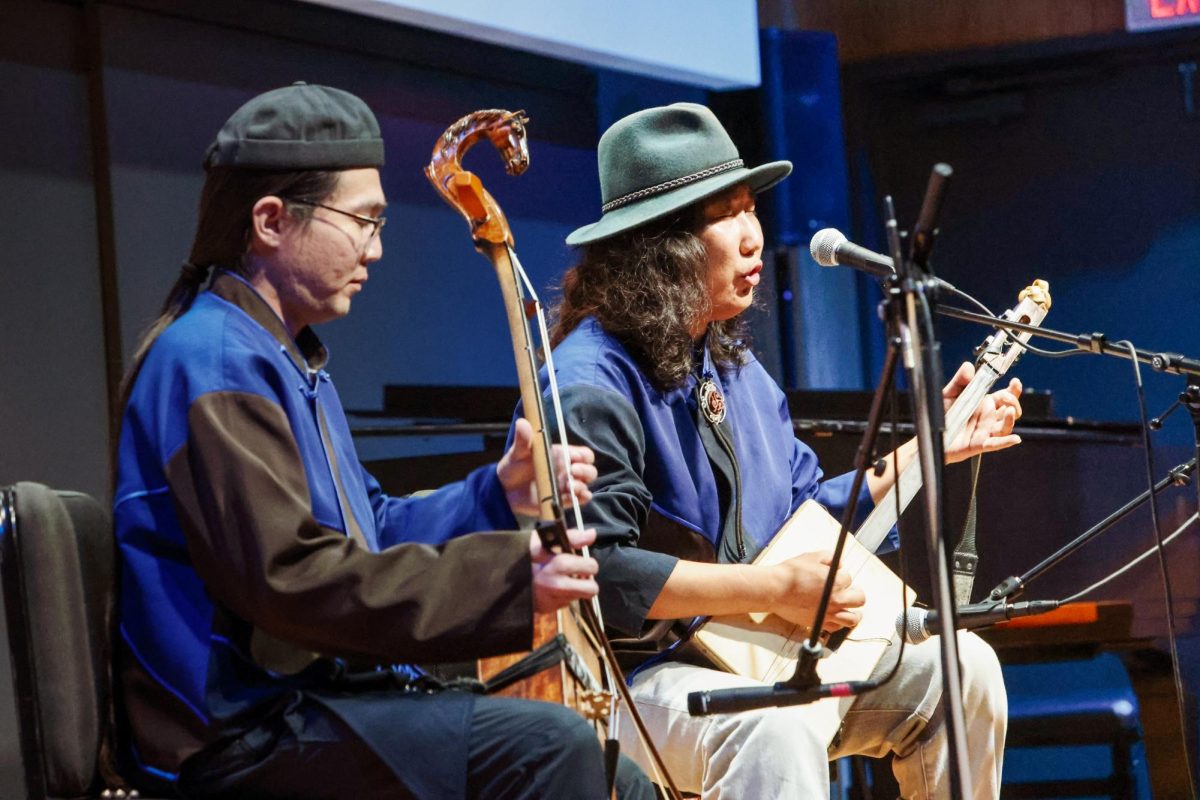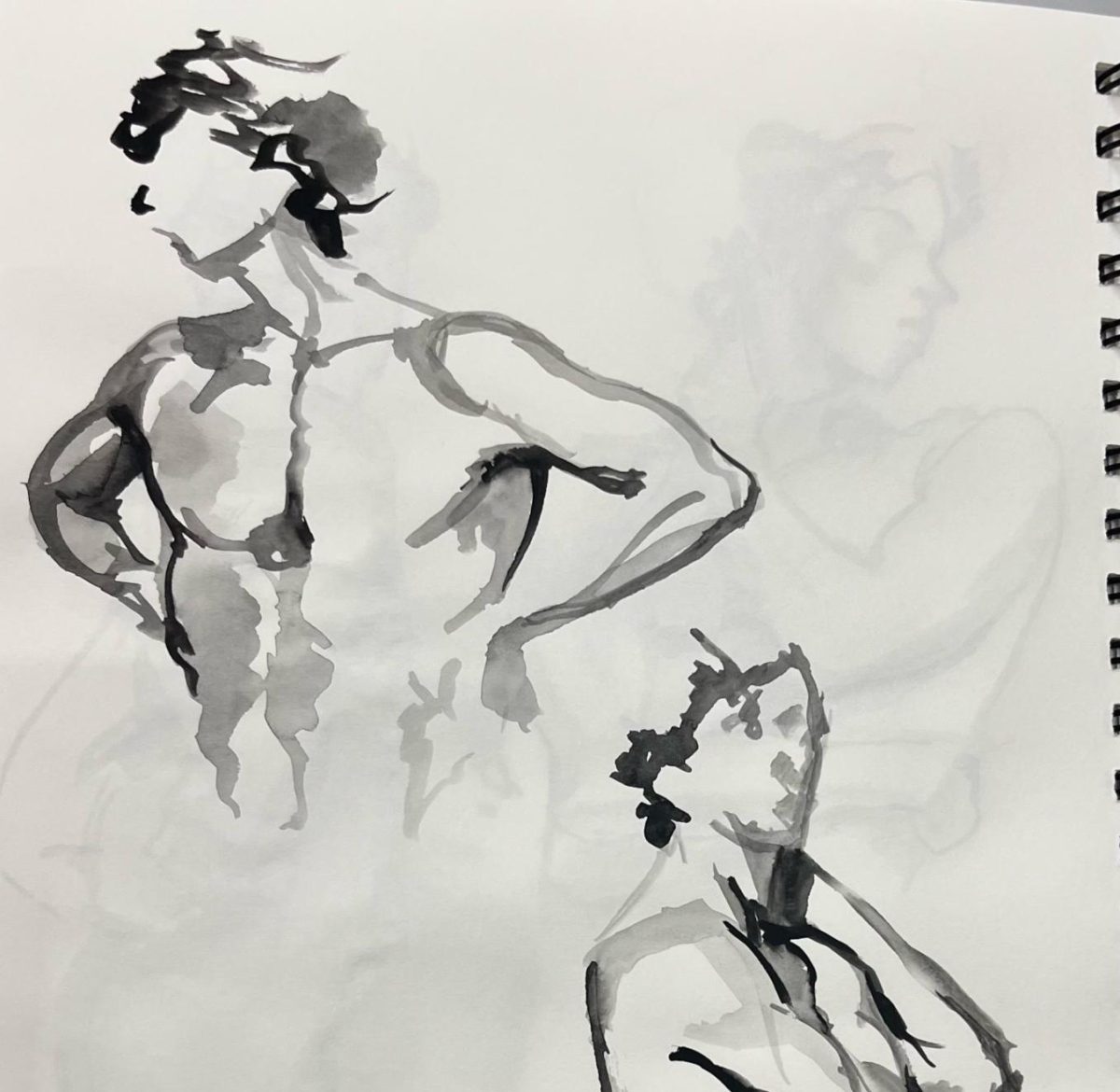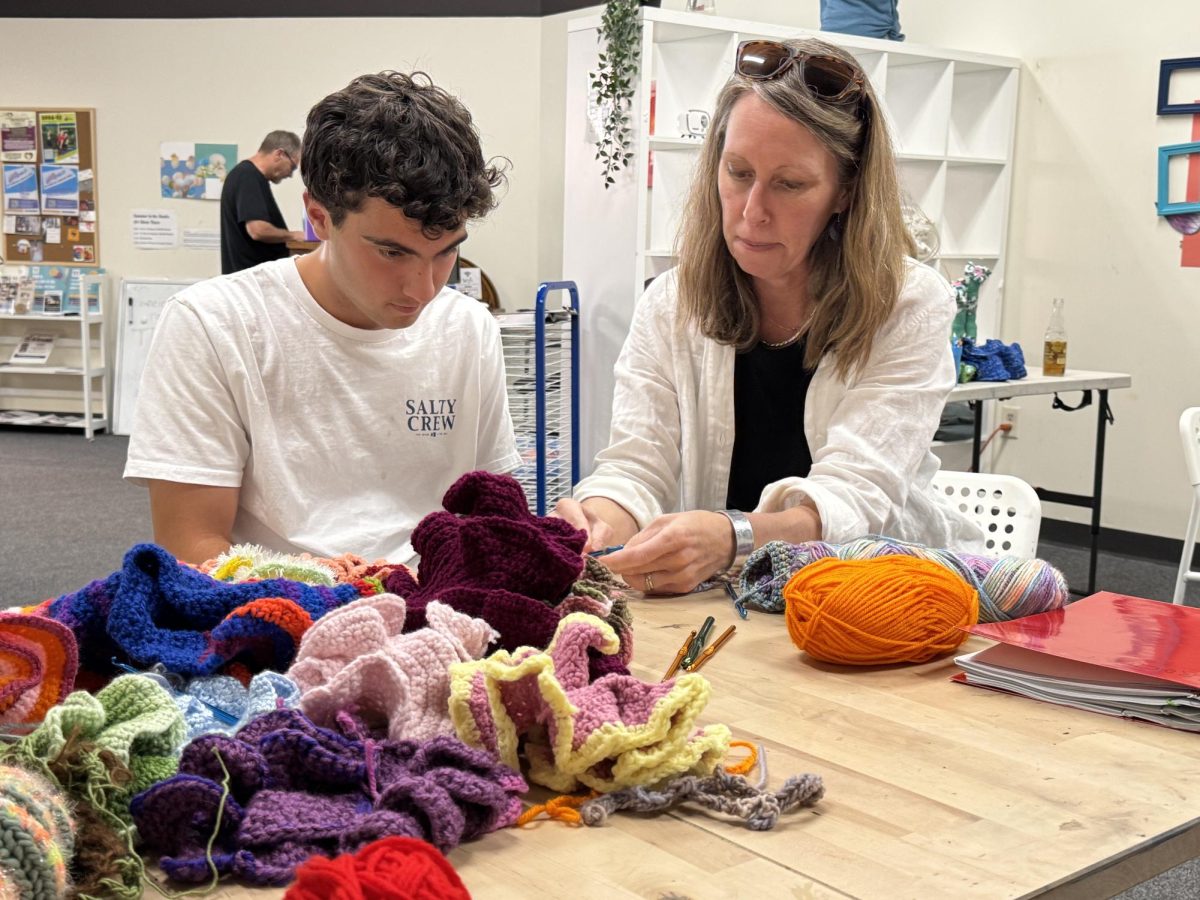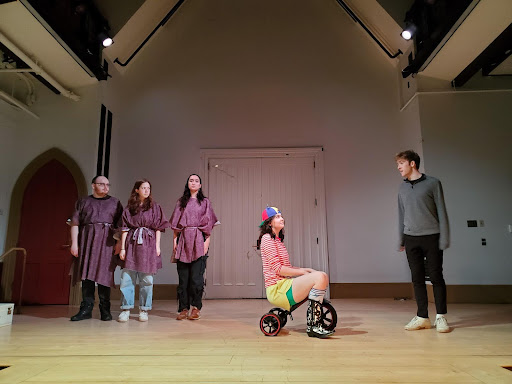
Cap & Bells will present its production of Eurydice by Sarah Ruhl on Friday at 5:00 p.m., Saturday at 4:30 p.m., and Sunday at 7:00 p.m. in Goodrich Hall. The play, directed by Emery Dunbar ’26, presents the classic Greek myth of Eurydice and Orpheus with a modern twist.
Originally, the myth focused on Orpheus and his heroic quest to rescue his love, Eurydice, from the Underworld. Instead of following Orpheus as the protagonist, in line with the original Greek myth, the play focuses on Eurydice, played by Francie Brewster ’25. “She is a young woman who’s kind of naive and excited about the world,” Brewster said. Led to the Underworld by the play’s equivalent of Hades — a villainous character described by cast members as a nasty, interesting man and played by Mati Rogers ’24 — Eurydice reconnects with her deceased father.
The play does not include any traditional Greek god characters and is written using modern dialogue but with a lyrical tone, explained stage manager Catriona Marangi ’26. “The lines of the show are more accessible than they would be if it was written like original Greek tragedies,” she said. “I think it’s easy to interpret and see yourself in the show.”
Though this is their first time lead directing at the College, Dunbar has been directing student productions since their senior year of high school. With encouragement from friends they met through student performance art at the College, they proposed Eurydice to Cap & Bells as a fall production. “One of my best friends’ mom recommended that play to me my senior year of high school, and I read it and instantly fell in love,” Dunbar said.
Dunbar has especially enjoyed seeing each actor’s take on the characters. “My perceptions of every character have dramatically shifted since casting and the first couple of weeks of rehearsals,” they said.
Aidan McMahon ’26 plays Orpheus and said that portraying this typically heroic character in a more nuanced light has been challenging. “Since he’s not the main focus [in Eurydice], I feel like [this production] reveals a lot more of his flaws,” he said. “Once you read into it, the play shows his incapability of properly caring for the people that he loves.”
“I think that [McMahon] is doing a really good job of showing that even though Orpheus is not necessarily a great person, he’s not necessarily awful either,” Dunbar added. “The reason that he messes up is because he’s ignorant.”
“Orpheus thinks he’s this great protector, and he is surely not,” McMahon added.
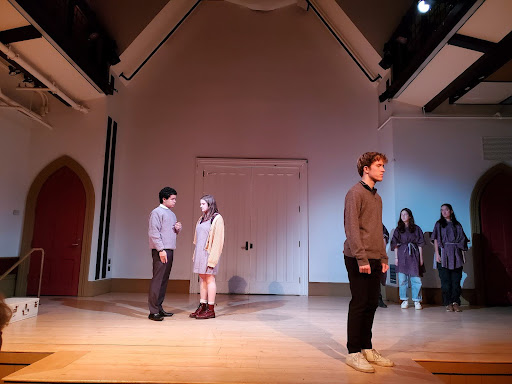
Brewster also brings a mixed set of emotions to Eurydice, McMahon said. “She does a really good job of making it ambiguous whether her lines are supposed to be funny or really serious because she can do both extremely well,” he said.
Rogers takes on the challenge of portraying two characters: the man who lures Eurydice to the Underworld and the lord of the Underworld, who takes the form of a turbulent child. “[Rogers] has a very firm understanding of how [these characters] transcend this reality beyond all of the other characters,” Dunbar said. They noted that Rogers breaks the fourth wall during the performance to have more direct interactions with the audience, showing her character’s metatheatrical power.
In helping the actors individualize and refine their characters for this production, Dunbar relies heavily on asking questions. “I’m never going to know the characters in the way that the actors do, because they’re embodying them,” Dunbar said.
Brewster said that Dunbar’s approach of allowing actors to explore the intricacies of their characters in their own way helped her during her audition. After answering some questions that Dunbar presented about the character of Eurydice, Brewster felt that her monologue performance drastically improved. “Only a really smart director can ask you exactly the questions that will bring out a better performance,” Brewster said.
As an English major, Dunbar pays close attention to specific details of scenes, focusing on elements of symbolism throughout the play. “I focus on those really small things because when I notice [symbolism] in other shows, it makes me happy,” they said.
Though the show deals with themes of grief and loss, Brewster hopes that the audience will find moments of joy and love in the performance. “I think that the play is really about love and what sacrifices you’re willing to make,” she said.
“I want people to understand that there’s always going to be these harder periods in your life, but that doesn’t mean that you can’t find these moments of joy,” Dunbar added.




